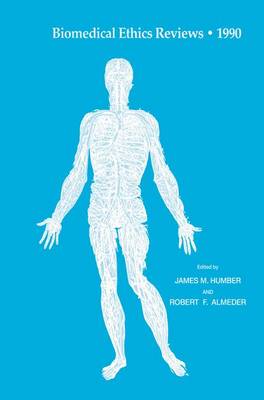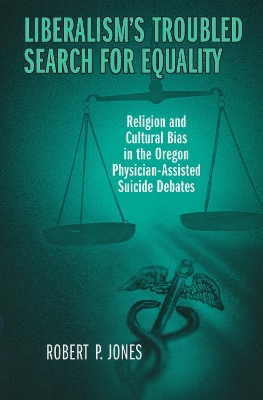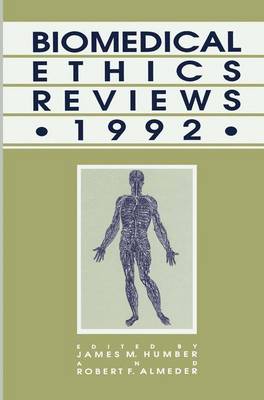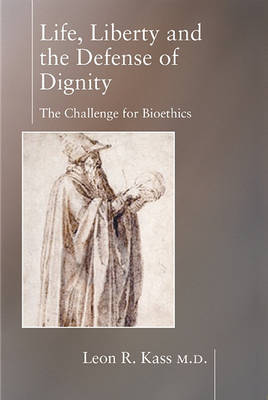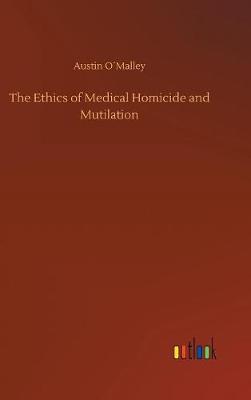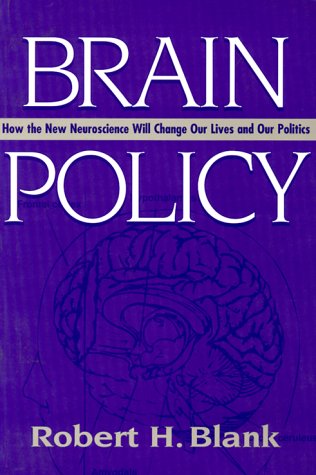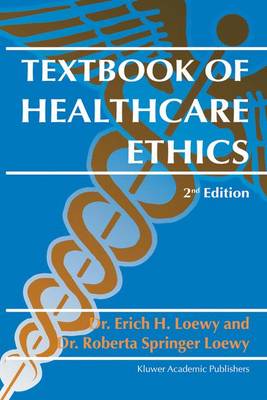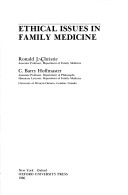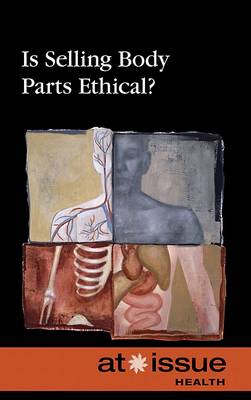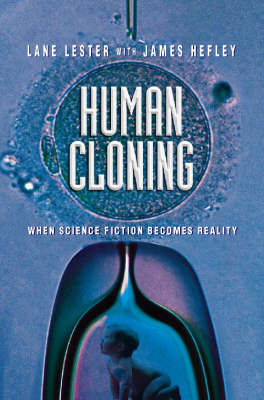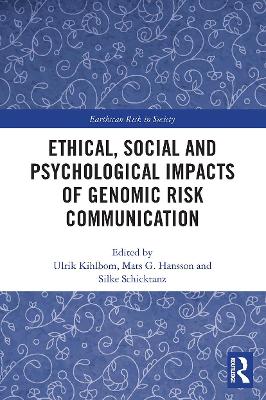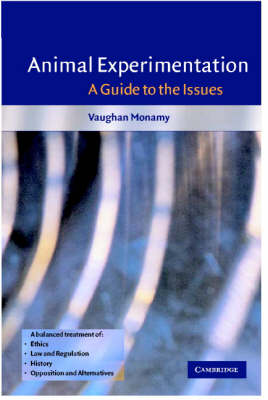A leading authority on genetic engineering sounds the alarm on the rapidly growing "business" of the manipulation and marketing of life forms. The escalating price placed on blood, organs, cells, genes, even children - along with the increasing ability of biotechnologies to alter the human body, has created a boom market. The book exposes the beginnings of a new eugenics movement, with sensational facts on the sale of babies, eggs and sperm.
Biomedical Ethics Reviews * 1990 is the eighth volume in a series of texts designed to review and update the literature on issues of central importance in bioethics today. Two topics are discussed in the present volume: (1) Should the United States Adopt a National Health Insurance Plan? and (2) Are the NIH Guidelines Adequate for the Care and Protection of Laboratory Animals? Each topic constitutes a separate section in our text; introductory essays briefly summarize the contents of each sectio...
How does biotechnology touch on human destiny? What are its promises and challenges? In search for a response, the present volume turns to the thought of Hans Jonas, one of the pioneers and founding fathers of bioethics. The continued relevance of his ideas is exemplified by the way Jurgen Habermas applies them to the current debate. The chief promise of biotechnology is to increase our freedom by overcoming the limits of the human condition. The main risk of biotechnology, as both Jonas and Hab...
Animal Rights: A Very Short Introduction (Very Short Introductions)
by David DeGrazia
Do animals have moral rights? If so, what does this mean? What sorts of mental lives do animals have, and how should we understand welfare? By presenting models for understanding animals' moral status and rights, and examining their mental lives and welfare, David DeGrazia explores the implications for how we should treat animals in connection with our diet, zoos, and research. Animal Rights distinguishes itself by combining intellectual rigour with accessibility, offering a distinct moral voice...
In Liberalism's Troubled Search for Equality, Robert P. Jones presents a penetrating examination of physician-assisted suicide that exposes unresolved tensions deep within liberal political theory. Jones asks why egalitarian liberal philosophers-most notably, Ronald Dworkin and John Rawls-support legalized physician-assisted suicide in direct opposition to groups of disadvantaged citizens they theoretically champion. Jones argues that egalitarian liberals ought to oppose physician-assisted suici...
Biomedical Ethics Reviews: 1992 is the tenth volume in a series of texts designed to review and update the literature on issues of central importance in bioethics today. Two topics are discussed in the present volume: (1) Bioethics and the Military, and (2) Compulsory Birth Control. Each topic constitutes a separate section in our text; introductory essays briefly summarize the contents of each section. Bioethics is, by its nature, interdisciplinary in character. Recog nizing this fact, the aut...
Ethics of the Body (Ethics of the Body) (Basic Bioethics)
The provocative contention of the postmodernist and feminist essays in Ethics of the Body is that conventional bioethics is out of touch, despite its growing profile. It is out of touch with an ongoing phenomenological sense of bodies themselves; with the impact of postmodernist theory as it problematizes the certainties of binary thinking; and with a postmodern culture in which bioscientific developments force us to question what is meant by the notion of the human self. The authors demonstrat...
This book grapples with the moral meaning of the new biomedical technologies now threatening to take us back to the future envisioned by Aldous Huxley in "Brave New World". In a series of meditations on cloning, embryo research, the sale of organs, and the assault on mortality itself, Kass questions the wisdom of trying to break down the natural boundaries given us and to remake the human body into an instrument of our will.
This book explores the many prospects, challenges and ethical questions that surround the engineering of our reproductive cells. It is an accessible, three-part examination, moving from focused, realistic assessments of the promise and problems for this advancing technology to a section of short essays on the implications of our technological ability. Also included is a panel discussion in which leading scientists, ethicists, and public policy workers give voice to their thoughts and concerns re...
"Brain Policy" makes the key facts from the technical literature readily accessible to social scientists and general readers and points out the implications for our society. Blank first explains the structure and function of the nervous system and current theories of brain operation; he then assesses the uses and potential abuses of various intervention techniques. He identifies the public policy issues raised by discoveries in the neurosciences and calls for intensified scrutiny of the advantag...
In February 1991, Elliot Gilbert, a 60-year-old professor of English, went into hospital for a routine prostate operation. Hours later, he was pronounced dead in the recovery ward. In this book, Gilbert's widow describes the shock and grief into which she and her children were plunged as they struggled to come to terms with his death. Her major focus is on the process of discovery through which they began to unravel the mystery of her husband's sudden death.
Research Ethics
The ethical conduct of research has become an area of great concern on university campuses across the nation. The cases and other materials in this book are designed to foster discussion of research ethics issues in the university classroom. The materials selected for inclusion here can speak to people in all disciplines, though the cases are drawn from biology, psychology, and history. They cover such topics as plagiarism, confidentiality, conflict of interest, fraud and misconduct, access to r...
Ethical Issues in Family Medicine
by Ronald J. Christie and C.Barry Hoffmaster
While ethicists have directed much attention to controversial biomedical issues--including euthanasia, abortion, and genetic engineering--they have largely ignored the less obvious, but more pervasive, everyday ethical problems faced by family physicians. Ethical Issues in Family Medicine addresses these problems, offering an ethics that reflects the distinctive features of family practice, and helping family physicians to appreciate the extent to which ethical issues influence their practice.
Scientifically grounded, this book takes on key ethical issues surrounding human cloning and the future of genetic engineering.
Ethical, Social and Psychological Impacts of Genomic Risk Communication (Earthscan Risk in Society)
This volume presents the ethical implications of risk information as related to genetics and other health data for policy decisions at clinical, research and societal levels. Ethical, Social and Psychological Impacts of Genomic Risk Communication examines the introduction of new types of health risk information based on faster, cheaper and larger sets of genetic or genomic analysis. Synthesizing the results of a five-year interdisciplinary project, it explores the unsolved ethical and social q...
An important new book for all those involved in the conduct, teaching, learning, regulation, support or critique of animal-based research. For perhaps the first time, all the major issues in the animal experimentation debate are introduced in the same volume. This book covers the history and ethics of experimentation, discusses the moral status of animals and the obligations of researchers and introduces alternatives to animal research. Although aimed at life-science students, its clarity of sty...

